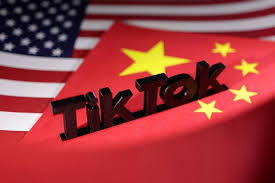On Friday, the startup-focused lender SVB Financial Group had an abrupt collapse that rocked the world’s financial markets and left billions of assets belonging to businesses and investors stranded. Its failure was the greatest bank failure since the 2008 financial crisis.
The bank, which operated under the name Silicon Valley Bank, was shut down by California banking regulators on Friday and the Federal Deposit Insurance Corporation (FDIC) was named as receiver for a subsequent sale of its assets.
The FDIC announced that Silicon Valley Bank’s main office and all of its branches will reopen on March 13 and that all insured depositors will have complete access to their insured deposits by Monday morning.
However, the FDIC reports that as of the end of 2022, 89% of the bank $175 billion in deposits were not insured, and it is unknown what would happen to them.
According to persons familiar with the situation who asked to remain anonymous because the specifics are classified, the FDIC is reportedly rushing to locate another bank over the weekend that is willing to merge with Silicon Valley Bank. The sources stated that while the FDIC wants to put together such a merger by Monday to protect unsecured deposits, nothing is guaranteed.
Requests for comment from the FDIC were not immediately answered by a spokesperson.
Separately, according to the sources, Silicon Valley Bank’s parent company, SVB Financial, is attempting to sell its other assets, which include the investment bank SVB Securities, wealth manager Boston Private, and equity research firm MoffettNathanson, by working with an investment bank. Centerview Partners and law firm Sullivan & Cromwell. According to the sources, these assets can draw rival businesses and private equity groups.
It’s uncertain whether any buyer will step forward to purchase these assets without SVB Finance first declaring bankruptcy.
The credit rating organization S&P Global Ratings stated on Friday that due to its liabilities, SVB Finance will likely file for bankruptcy.
Requests for comment to SVB were not answered.
Businesses like streaming gadget maker Roku Inc. and video game developer Roblox Corp. claimed to have hundreds of millions of dollars deposited with the bank. When Roku revealed that the majority of the deposits it had with SVB were not insured, its shares fell 10% in an extended session.
Technology workers who depended on the bank for their salaries were similarly concerned about receiving their money on Friday. Customers at an SVB location in San Francisco were instructed to call a toll-free number in a notice that was pinned to the door.
Locked doors
The startup community, which has come to consider the lender as a source of dependable finance, was rocked by the collapse.
On Friday, locked doors greeted visitors to the bank. According to a bank client in the UK, a client dashboard was unavailable.
Dean Nelson, CEO of Cato Digital, was waiting in line outside the SVB Santa Clara offices in search of solutions. Nelson stated that he was concerned about the business’s capacity to pay workers and cover bills.
The bulk of the businesses in this area has the biggest issue with access to cash. Cash is king when starting a business. It’s crucial to have a runway for the cash and the workflow. Greg Becker, the CEO of SVB Financial, acknowledged the “extremely tough” 48 hours before the bank’s failure in a video statement to staff members on Friday. He remarked, “I can’t fathom what was going through your thoughts and worried about your work, your future.
The issues at SVB, which immediately got worse after the bank said on Wednesday that it would raise money, highlight how the US Federal Reserve’s and other central banks’ efforts to fight inflation by ending the period of cheap money are revealing market weaknesses. Concerns severely impacted the banking industry.
According to the reporters’ assessment, the value of US banks’ stock market holdings has decreased by more than $100 billion over the last two days, and the value of European banks has decreased by almost $50 billion.
In an effort to soothe investors as their shares plummeted, U.S lenders First Republic Bank and Western Alliance stated on Friday that their liquidity and deposits remained solid.
Others, like the Commerzbank of Germany, made peculiar pronouncements to comfort investors.
More agony
As the episode spread to worry about hidden vulnerabilities in the banking sector and its sensitivity to increasing interest rates, several analysts predicted further suffering for the industry.
The short sellers are out there and they are going to attack every single bank, especially the smaller ones, according to Christopher Whalen, chairman of Whalen Global Advisers. “There might be carnage next week,” he added.
US Treasury Secretary Janet Yellen met with bank regulators on Friday and stated that she had “complete confidence” in their capacity to address the crisis.
In response to a question regarding the failure of SVB, the White House stated on Friday that it had faith and confidence in US financial regulators. The United States banking system is fundamentally stronger today than it was in the wake of the 2008 financial crisis, according to Cecilia Rouse, chair of the Council of Economic Advisers.


















